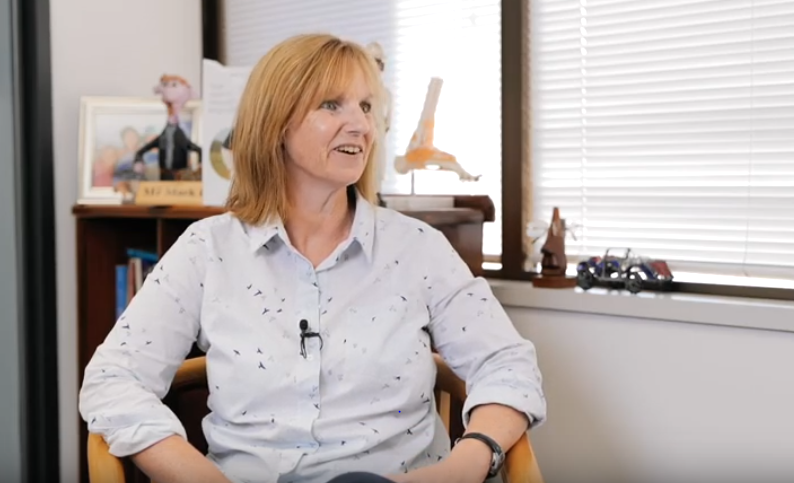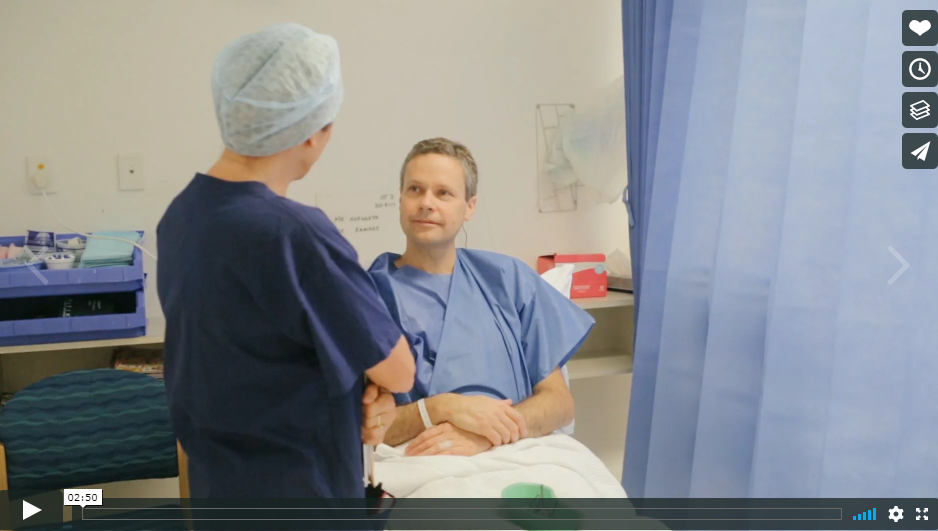Research studies are currently underway, run by Mark Hurworth and his team at SJOG Murdoch, with patients using an Infocrank power meter in their own home to measure their cycling activity while preparing for surgery and then during rehabilitation after surgery. This research will help guide future patients, to help them achieve the best outcomes.
Read MoreThe issue of opioid addiction has been prominent in the media over recent years. Opioid medications are strong, potentially addictive prescription drugs used for severe pain and following surgery. But how effective are they really? Might they sometimes be doing the opposite, and increasing pain?
Read MoreRestrictions on gyms, fitness classes and leisure centres are lifting, and most people are eagerly returning to their pre-COVID exercise routines. After such a prolonged break, jumping straight back into exercise can lead to injuries and overuse conditions, particularly in the older adult population. This blog outlines some basic rules to help you return to exercise safely.
Read MoreDr Nikki Cummings, principal dietician from Optimal Intake, spoke with Dr Mark Hurworth about her approach to good nutrition - improving our relationship with food and shifting the focus to what we put into our bodies rather than cutting foods out. Nikki advocates that ditching the scales completely might be the way to go. “It is very hard to improve someone’s relationship with food when their only measure is weight loss; all they will end up doing is restricting their intake”.
Read MoreWatch this highly informative and thought-provoking discussion between Mark Hurworth (Orthopaedic Surgeon) and Ian Dowley (Senior Physiotherapist) about how the decision to operate or not to operate is made. The increasing availability of higher quality radiological imaging often causes a “knowledge explosion” - these images show every little change and irregularity in our bodies. But what is relevant? What is ‘normal’ age-related change and what is actually related to our symptoms? Do these ‘issues’ that have been identified actually need to be surgically ‘fixed’? In a radiological report the complex technical jargon or even the sheer volume of information can be scary and threatening for the patient.
Read More
Modern medical imaging techniques such as MRI (magnetic resonance imaging) allow us to see the structures and tissues within our bodies in an extraordinary amount of detail. But, these highly detailed and readily available scans can lead to premature, unnecessary and unhelpful diagnosis of normal age-related changes that are not actually a problem. A good example of this was highlighted in the 2018 article by Kumm et al. in Acta Orthopaedica, which showed how ‘normal’ and common these ‘abnormalities’ were in their study of pain free, middle aged knees over a period of time.
Read More
In the 2014-2015 Australian Health Survey, 55.5% of adults between 18 and 64 participated in the recommended amount of weekly exercise. Which means that nearly half of us are not doing enough to get all of the benefits of exercise. The World Health Organisation (WHO) has collated research from around the world to define the recommended minimum guidelines for physical activity in adults from the age of 18.
Read MoreDr Demaio discusses lifestyle factors that are shown to help us ‘Wrinkle Well’ across each decade of our adult lives.
Read MoreThe CHECK cohort study findings indicate that when knee or hip OA is painful, it is the overall severity of the symptoms which increase the likelihood of having a joint replacement, rather than the rate at which these symptoms increase over time. As OA symptoms appear to remain reasonably stable over time, it may be beneficial to postpone primary joint replacement surgery to lower the future risks of revision surgery.
Read MoreMark Hurworth (Orthopedic Surgeon) and Ian Dowley (Senior Physiotherapist) discuss ‘The Anxious Tendon’ - Approaching tendinopathy treatment as a anxiety disorder of a tendon.
Read MoreMark Hurworth (Orthopedic Surgeon) and Ian Dowley (Senior Physiotherapist) discuss the complexities of pain and pain management.
Read MoreA current popular trend in weight loss is the fasting diet, sometimes called an intermittent calorie restriction diet. These diets are often touted as a more successful or less onerous alternative to a conventional weight loss diet based on continuous calorie restriction. So, what does the research tell us? To lose weight and keep it off, are we better off eating less every day? Or trying regular, intermittent calorie restriction (5:2)? Or using severe intermittent calorie restriction (5 days decreased intake:2 days fasting)?
Read MoreWith the average age of our population increasing, and with many people also dealing with obesity and a sedentary lifestyle, the number of people affected by OA and the disability it causes is also increasing. Fortunately, so has our understanding of this condition. So, what exactly is OA? The Journal of Rheumatology published an excellent article in (April 2018) summarising the best current medical and scientific understanding of the condition we call osteoarthritis. Here is the WrinkleWell summary of the summary.
Read MoreKevin, a 35yo from California, found a novel way to motivate himself and his mates to lose weight and keep it off. “I could lie and tell you that my new-found drive to exercise is due to pride or determination. The reality is far more pedestrian (ha ha). Money is on the line.”
Read MoreClick here to follow the journey of a patient having a day surgery procedure at the Murdoch Surgicentre and give you an idea of what you can expect.
Read MoreOn May 15 2018 the SBS Network in Australia aired an episode of their ‘Insight’ program which highlights the current and ongoing debate amongst health care professionals regarding the effectiveness and appropriateness of surgical and non-surgical alternatives to back, knee and hip surgery. The program features interviews with patients, surgeons, physiotherapists and researchers as they discuss the big question: Is surgery the answer to our joint problems?
Read MoreOur emphasis at Wrinkle Well is the effect of ageing on joints, muscles, bones and tendons. Perhaps ironically, given our name, we have not paid much attention to the biggest organ of all - and the one that visibly reflects the ageing process of the entire body - our skin. However, a recent article by Suvi Mahonen, published in the Australian on 25/5/18 draws some interesting connections between the skin (ageing, identity and skin health) and our focus areas of mental health and physical wellbeing. In the article, dermatologists Adam Sheridan and Michael Freeman, and cosmetic and medical specialists Terrence Scamp, Ehsan Jadoon and Kym Jenkins discuss skin ageing, what it means to us as individuals and what we can do to care for our skin.
Read MoreGolf is a popular sport, as it is accessible to people of almost any age. The popularity of golf in the older population cannot be argued. In contrast to most other sports, we tend to play more golf as we get older. Golf has many potential health benefits for those who play, but to avoid injury you should; play regularly, warm up, work on your technique and add in some strength exercise.
Read MoreThe problem of opiate addiction is very real, and needs to be taken seriously. The fastest growing group of addictions in western society are medically prescribed opiates. There has been a deluge of media coverage in recent months regarding the ‘epidemic’ of addiction to medically prescribed opioids.
Read MoreBaker’s cysts are a common cause of knee pain seen in the clinics of surgeons, doctors and physiotherapists. They are named after Mr Baker, and are not particularly prevalent amongst bakers. Baker’s cysts are rarely the primary cause of knee symptoms. They tend to indicate that something is going on with the knee, and it is the knee itself that the symptoms are coming from.
Read More



















